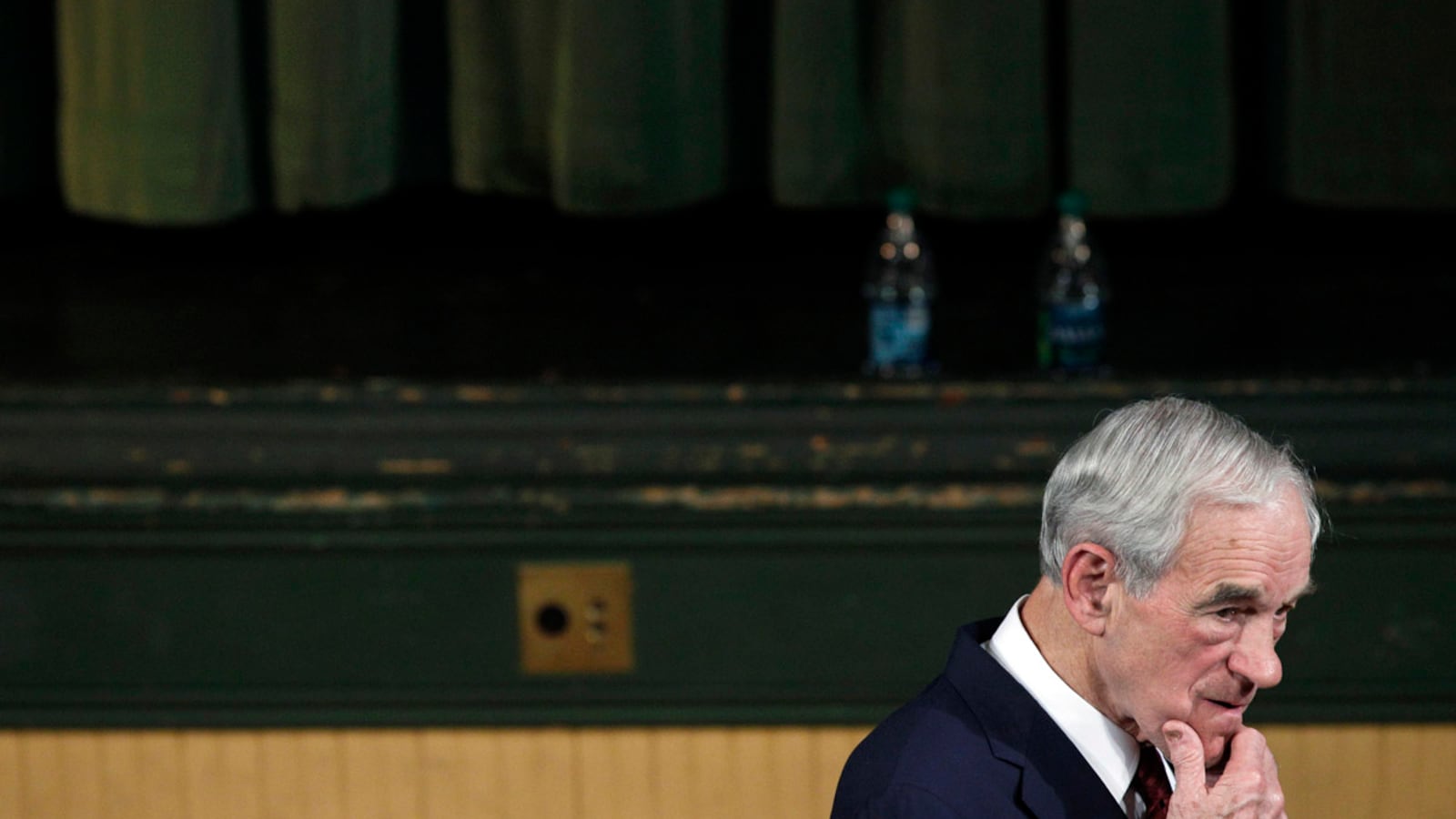Let me take you back for a moment, to those heady days of 2008.
Like so many African-Americans, I identified with the presidential candidate Barack Obama, perhaps in a more visceral way than most of the electorate. He had been, like so many young people of my political persuasion, enraged and embittered by the Bush presidency. At an antiwar rally in Chicago in October 2002, he said, “I am opposed to the cynical attempt by Richard Perle and Paul Wolfowitz and other armchair, weekend warriors in this administration to shove their own ideological agendas down our throats, irrespective of the costs in lives lost and in hardships borne” in reference to the forthcoming Iraq War. Now he talks of victory, as hundreds of thousands lie dead, the justification by the Bush administration for the war having long lain in tatters, the world and America’s reputation much worse for wear.

At the time, I, too, protested against the war in Iraq, and had seen through many of the Bush administration’s immoral and illegal policies from their inception. I stood waiting for American politics to undergo the paradigm shift it desperately needed: one that would create a citizenry that questioned its representatives and its president before agreeing so willfully to send its countrymen to wrest sovereignty away from a people half a world away, while strictly curtailing their civil liberties at home on the flimsiest of pretenses. This is one shift that America has yet to undergo, despite President Obama’s historic and inspirational election.
In Obama, we had a seemingly transcendent figure onto which we could project our best intentions, our desires for a sleek, multicultural, post-racial America. So in the fall of 2008, I returned to my home state of Ohio and signed up to volunteer at a local Obama field office in western Cincinnati. Knocking on doors day after day; proselytizing for Obama in one of Ohio’s most racially and economically divided cities; speaking with poor people who rarely involved themselves in the political process but who had a palpable enthusiasm for—at last!—a plausible black candidate for president, was one of the most fulfilling activities of my life.
Although Obama didn’t necessarily seem perturbed by the military-industrial complex and wasn’t much interested in single-payer health care, he preached a commitment to transparency and exuded a searching intelligence that excited me. Surprisingly, for the many people in the poor inner-city communities I encountered, Obama’s policies were of little import. They just liked that he was one of them. Or at least looked like one of them.
Many people in the imperiled working-class African-American communities continue to be drawn to President Obama, despite his lack of interest in helping struggling black homeowners plagued by predatory lending or those unfairly criminalized by the war on drugs. Given all the obfuscation and disrespect paid to him by the increasingly abrasive and indignant Republican majority in the House and the utterly obstructionist minority in the Senate, our community’s loyalty is perhaps justified.
How foolish we all have been. Our African-American communities have largely bought into a form of magical thinking. But who could blame us?
I’m not sure which straw broke the camel’s back when it came to my love affair with Barack Obama. It was certainly long before the National Defense Authorization Act, which the president signed on New Year’s Eve, ensuring that his successors will be able to detain any of us for as long as they want without due process of law. A couple of days after that glorious first Tuesday in November three years ago, when he appeared at his first post-election press conference, flanked by what might as well have been the board of Goldman Sachs to announce his transition team, a bad taste started to form in my mouth.
From the too-small-to-matter stimulus package, ironically pushed through at the height of his electoral mandate, through the secret negotiations with the pharmaceutical industry to keep prices artificially high, I quaintly, but halfheartedly, defended Obama. As we continued to use drones to kill innocents across the world in our quest to end terror (as if such a thing were possible), breezily deported record numbers of troops, and clamped down on whistle-blowers, I grew confused. As progressive African-American members of Obama’s administration were targeted by right-wing demagogues, while the president refused to stand up for them; as promises for greater transparency went by the wayside; as the mettle to fulfill his promise to close Guantánamo Bay atrophied; as significant progress in our preparations to mitigate the effects of climate change went unfulfilled, my confusion gave way to sullenness and even anger.
Where had our captain gone? The one with that effortless smile and the peculiar left-handed jump shot, who had seen black America as it really was, in all its troubling but understandable contradictions, who could cast shame on the fantasies of Republican politicians and local television news stations, with their constant pathologizing of black life? Obama had befriended Palestinian intellectuals and ex-Weathermen, we told ourselves. Surely he was the one who would finally, as George W. Bush promised so many years ago, “restore dignity and honor to the White House.”
That Obama seems to have vanished before our eyes. The president I held such high hopes for has failed on so many fronts, it is difficult to pinpoint when all my illusions finally faded. So it’s on to more pressing matters: who should those voters I helped persuade some 40 months ago in the ghettos of Cincinnati turn to now? If I had the chance to, which I likely won’t, I would tell them to vote for Ron Paul in a match-up with President Obama.
Let me state unequivocally: I abhor Paul’s stances on a woman’s right to choose, welfare, Social Security, Medicaid and Medicare, the Department of Education, the Civil Rights Act, and food stamps. (After all, I’m on food stamps.) The man who’s name is emblazoned on early-'90s newsletters that say utterly reprehensible things like “Given the inefficiencies of what D.C. laughingly calls the criminal justice system, I think we can safely assume that 95 percent of the black males in that city are semi-criminal or entirely criminal,” and “Opinion polls consistently show that only about 5 percent of blacks have sensible political opinions,” is clearly a tangled mass of contradictions for someone like me. Ron Paul is a walking Missouri Compromise. His ideas feed the most fervent ends of the political spectrum, both left and right.
Yet on the defining civil-rights issue of our time, one that decimates families of all colors every day but has wreaked a special kind of havoc on the black community, Paul is the only nationally recognized politician who has come out with a moral case for ending the war on drugs, who has publicly derided it as racist and un-American.
At a New Hampshire primary debate, Paul spoke at length about the racism inherent on the war on drugs. Diane Sawyer dropped the inquiry, choosing not to ask the other Republican candidates to issue their opinions. Not that we can blame her. I doubt she knows anyone who is in jail for marijuana possession.
As a moral bulwark against the continued infringement upon our civil liberties, the codifying of indefinite detention, and the use of executive privilege to hide state secrets, Paul stands alone among national politicians, presidential candidates or not. That in the past he has been on the wrong side of history—that he allowed himself to embrace the most fringe elements of the white-supremacy movement, among other transgressions—is regrettable and damning. Yet let there be no doubt: Paul is the only Republican candidate who has not indulged in theologically or racially incendiary rhetoric when talking about American foreign policy and the domestic welfare state during the current and last election cycles.
Perhaps more important than any of this, he has, as The Atlantic’s Robert Wright pointed out, exhibited a startlingly empathetic moral imagination when it comes to non-Americans. He has been willing to publicly put himself in the shoes of our “enemies.” He has stood up for Iranian sovereignty, he has questioned our motives for blindly supporting an Israel that increasingly resembles an apartheid state, he has suggested that preemptive war—the indiscriminate killing of civilians abroad and prolonged occupations, seemingly in our national interest—will actually be our nation’s undoing. He has done this on the national stage, alone (though, occasionally, Jon Huntsman has nudged in this direction, halfheartedly).
For this advocacy on the part of our and other nation’s most powerless citizens, Ron Paul deserves respect, admiration, and, if you're conscientious enough to respect the moral imperatives at play in these issues, your vote—regardless of who you most identify with and, perhaps, regardless of whether you’re pro-choice. For it is less likely that a President Paul would be able to end Medicaid or have Roe v. Wade overturned than it is that he would be able to significantly curtail excessive use of American military force abroad—perhaps our country’s most lasting morally dubious historical legacy of the modern era.
Yet Obama still has a hold on my community. Identity politics, as Debra Dickerson documented so eloquently in her Bush-era polemic, The End of Blackness, has gotten black America nowhere. It’s time we supported politicians, regardless of their party affiliations or the color of their skin, who uphold policies that will see an end to the disproportionate jailing of our young, our most impressionable, our most vulnerable members; who will not continue to send us to die on foreign soils in numbers that are much greater than our share; who will respect the dignity and sovereignty of our homes and property, regardless of what they claimed to believe about our communities 20-plus years ago.
Ron Paul needs to better explain the evolution of his beliefs about race, but Obama needs to do something beyond occasionally speaking in the cadences of a black preacher before the Urban League to win my vote again.
Somehow, I don’t think he’s going to convince me this time.






